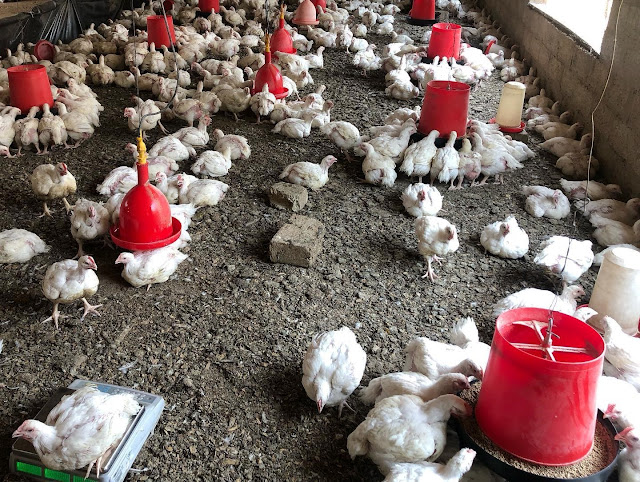You can get rich through any business including poultry farming. I
have seen many rich farmers and very poor farmers. This is common in every
business.
Below are the real reasons why some people never make real money in
poultry farming business:
1.
Disorganization
Oh yes. Some farmers are so disorganized. The real truth is that
disorganized people don't make money. Order, they say is the first law in heaven.
Money is usually magnetic to order. How would you know that you are making
profit yet you do not have records
for your expenses?
2. Cruelty
Some farmers are cruel to their workers. Always shouting. Always
threatening workers. And of course, workers will keep sabotaging their plans
and efforts. I know of a farm where a worker refused to give water and feed to
the chickens for the first half of the day, because he was annoyed with the
farm owner over some issues! But of course I am not saying that you should babysit
the workers!
3. Chop Alone
Mentality
Some farmers have continually found it difficult to make real good
money in poultry farming because they are always very selfish in good times.
Good times should favour everybody in the business. Those who don't share the
good times in business with their workers rarely get rich. Why do you pay
peanuts to farm workers yet they offload feed, mix feed, bag feed, look after
chicken, some sell for you, remove manure from cages…On some farms, the work is
surely too much for less payments.
4. Production
Junkies
It's good to be good in production, but your ignorance of marketing
farm products will radically limit your exploits in any business
including farming.
Do not just sit back and wait for a middleman to dictate for you prices of broilers, feed, medicine etc. Get involved.
5. Poor
Marketing Sense
Be good in production and be super good in marketing if you really
want to make it in business including poultry farming. Marketing
and innovation is really the work we do as business owners. The
more we know this, the better our business become. How many egg markets do you
know? Other than selling eggs, which other product do you sell from your farm?
Do you just give away manure?
6. Lack of
Vision
Where there is no vision, poverty reigns. Vision is what attracts
provision to any venture including poultry farming business.
7. Extravagant
Living
Some poultry farmers get too impatient for the business to grow
before they start living big. There is nothing wrong with living big, but doing
this too early in a poultry farming business can bring poverty fast.
Dear our
mothers, please use money from profit for farm growth, and not for baby
showers, kyanjula showers, first tooth celebrations and other stuff.
Disclaimer
The above is simply my opinion coming from my experience in the
poultry farming industry. If you find yourself guilty of any of the above points,
quickly correct yourself and move on. Believe me, things will start changing
positively. I was also guilty of some of them, but I have learnt the hard way.


Comments
Post a Comment